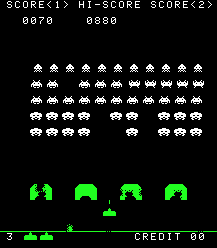Gylfi.Fenriz.Conquests said:
Castanova said:
Sorry, but they're mostly correct. If your main character is just a cipher for the audience then why have that character at all? You could remove the character and tell the same story. Characters that are ciphers for the audience are cheap tricks to try to capture audience empathy without earning it. Also, it is appealing to dumb people who would fail to understand what's happening without someone to explain it to them.
A perfect story has no wasted elements and a main character that serves no intrinsic purpose is a massive wasted element.
Frodo in LOTR is a crappy character because there is nothing about him that makes him suitable to be "the one." He's only "the one" by virtue of his relationship to his uncle or whatever. He has no real character traits or anything. He's just a random Hobbit. His struggle with the allure of the ring has nothing to do with his own character. The ring does that trick to everyone.
lol how can you remove the character and tell the same story if none was there to see it? You necessarily need someone to report it. If you remove that character, and tell the story anyway, the "reporter" is the writer, he'll still be a character, wasted. So you might as well picture a slightly better character that's still just a reporter.
One Frodo character is not wasted anyway, because portraying such a "thin" character can be quite artistically pleasant to read, he can "blend" himself with events, the reader will attribute his own personality to him/her
Guybrush Threepwood is, as far as i'm concerned, nomore than an avatar, infact i would infuse some of my personality in "him", to "complete" his attitude. For me Guybrush is the average dude of the '90s, slick and mean spirited, the perfect spokesman of us bright adventurers whose experience with C64 made us into rough and goofy gemstones.
Going from The Hobbit as a 8 yr old to LotR as a young teenager (13?), and re-reading them since, my main impression of Frodo's character was that:
(a) in Fellowship, he is mainly an observer (with the 'big character arc' stuff going to the rest of the fellowship); but
(b) his character does have some crucial traits, primarily in distinguishing him from Bilbo. Bilbo was the consumate 'adventurer personality'. He's brave, but moreover, he's dissatisfied at home and wants to go out and explore the world. Frodo isn't like that. Frodo is reluctant, and would be perfectly happy living in the Shire, if it wasn't that he was unfortunate enough to be on the receiving end of a cursed ring. That's right, Frodo was emo decades before his time.
The point with that is that matches Tolkein's own war experiences. Bilbo goes out of adventurousness, Frodo goes out of duty. And if there is one character trait that is central to LotR's themes, and is central to Frodo, it is duty.
(c) Frodo does get a character arc, but it is the slowest out of all the characters. Most characters, other than Aragorn and Frodo, only really get an arc in one book, and stay stagnant throughout the other two. E.g. everything you need to know about Gimli and Legolas is established by the end of Fellowship. Everything you need to know about Merry and Pippen is established in The Two Towers (i.e. in starting off naive jokester Bilbo-lite characters, getting separated, maturing and facing their duty). Frodo (and Sam) move the slowest - having virtually zero arc in Fellowship, but a decent amount in the Two Towers, and a fuckload in Return of the King.
I'm not going to go into an argument about why LoTR is 'capital L literature' and why Harry Potter isn't, as frankly I've learnt long ago that that's pointless. I also readily acknowledge that being Literature doesn't necessarily make a book more enjoyable, or even more of an achievement, than a top pop novel - if I had to list my favourite novels, sure there'd be some Literature works (Heart of Darkness, Nostromo, The Plague, Frankenstein) but there'd also be plenty of 'pop-fiction' (Trainspotting, Maribou Stork Nightmares, American Psycho, Glamorama, a fair chunk of the The Dark Tower series...). Though I will say that its merits have little to do with 'omg he wrote a history around the book!!!' (though obviously that particular method worked well for him).



















